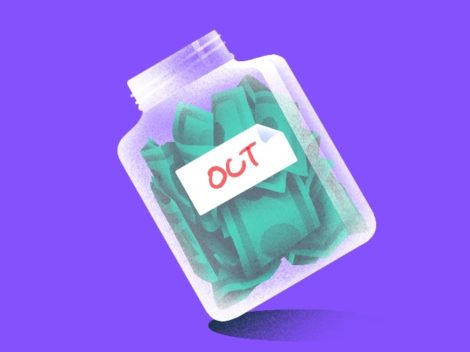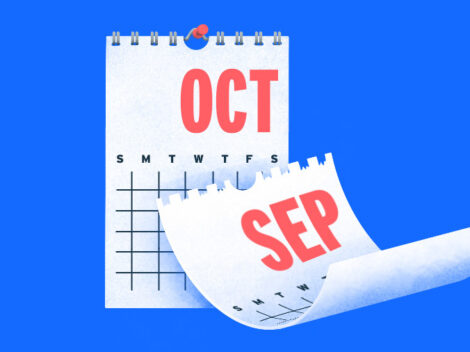Institutional Venture Partners knows a thing or two about funding SaaS startups.
Subscribe to the Crunchbase Daily
The 41-year-old firm invests primarily from Series B onwards in enterprise and consumer-focused companies that have product market fit.
Earlier this year, IVP closed on a $1.8 billion fund—its 17th fund and largest to date — and has already had 10 IPOs out of its portfolio this year, including big names like Coinbase, Robinhood, SoFi, Compass and ZipRecruiter.
Given its track record, IVP partners Parsa Saljoughian and Michael Miao recently teamed up to write the firm’s SaaS Fundraising Handbook—a primer for subscription software founders on the metrics they need to understand when raising capital from investors.
The goal is to make life easier for both founders and investors, as well as to provide insights for founders on how a partner at a venture firm gets to conviction and decides to provide capital.

“We put together all the knowledge that we’ve accumulated over many years, put together benchmarks that are helpful around growth, net dollar retention, key metrics that are really important to SaaS companies,” Saljoughian said in an interview. “And then some perspectives on key pitfalls to avoid.”
So far this year, IVP’s portfolio has produced 10 IPOs including Coinbase, UiPath, Robinhood, Wise, SoFi, Compass, LegalZoom, ZipRecruiter, Hims & Hers and The Honest Company. That marks an all-time record count for the firm, per Crunchbase data, and more are slated to come later this year.
It has also increased its investment pace in 2021, leading the Series C rounds in online events company Hopin, healthy heart monitoring company Hello Heart, and edtech online tutoring company Paper, among others.
Saljoughian and Miao anticipate that geographies outside the U.S. will become important for IVP’s new fund, especially Europe and Southeast Asia.
With that in mind, here’s a closer look at some of the top metrics the IVP partners look at when considering SaaS startups to invest in.
Open-source
One of the most important metrics they look at is a company’s growth rate.

“If we see a company growing in the 90th percentile, that gets us incredibly excited, and if we see a company growing at the 75th percentile, that gets us incredibly excited,” Saljoughian said. “We’re just looking for a signal, for something here that is really working. And then it’s on us to go look at sales efficiency, to go look at the market dynamics, to look at, “Hey, do we see a path for this becoming a $1 billion, $5 billion, $10 billion, $20 billion company?”
Revenue is one data point

“That’s not to say that’s a hard and fast rule at IVP,” Miao added. “We frequently invest in companies that are at the 50th percentile. You’ll see in the SaaS handbook, revenue and ARR growth isn’t the only indicator of a company’s future success and potential.”
Partners also look at the management team, market size and customer feedback.
“The quantitative stuff—that’s probably 50 percent of it,” Miao said. “The qualitative stuff, the other 50 percent.”
Per the handbook, SaaS multiples for public companies are at an all-time high for the 58 companies they reviewed. The average for the past five years is 11.8x revenue over the next 12 months.
But in the past three years the multiple has jumped to 14.7x. In the last year, it’s climbed further still, to 19.8x—an all time high.

Increasing the efficiency of the fundraising process
The spreadsheets and analysis in IVP’s 20-page handbook can assist as startups fundraise, but can also help founders calibrate business success as well as benchmarking for their boards.
“This tailwind of technology innovation is much greater than the headwind of increased competition,” Miao said, speaking about the impact of hedge funds in late stage investing as well as earlier-stage funds raising growth funds. “We think competition is just better for entrepreneurs.”
As a result, IVP’s investors look to be well educated on a company in advance of meeting in order to have a productive conversation on how they can partner and move quickly should the firm plan to invest.
Crunchbase Pro queries relevant to this article
- 2021 IPOs for Institutional Venture Partners
- Institutional Venture Partners investments in 2021
- IVP investments in private unicorns
Illustration: Li-Anne Dias

Stay up to date with recent funding rounds, acquisitions, and more with the Crunchbase Daily.






![Illustration of a tidal wave - Blank - Quarterly Reports [Dom Guzman]](https://news.crunchbase.com/wp-content/uploads/Quarterly-Blank-300x168.jpg)
![Illustration of a man sitting on a huge pile o' money. [Dom Guzman]](https://news.crunchbase.com/wp-content/uploads/Giant_Funding-300x168.jpg)

![Illustration of woman building charts. [Dom Guzman]](https://news.crunchbase.com/wp-content/uploads/charts-300x168.jpg)

67.1K Followers